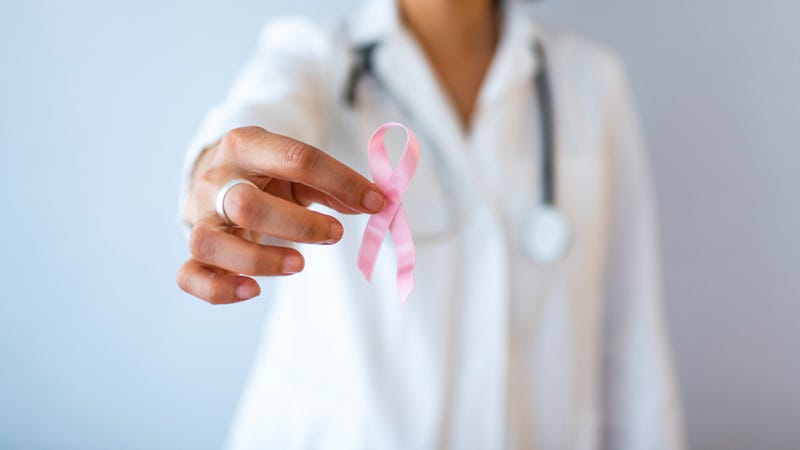
PHILADELPHIA (KYW Newsradio) — October is Breast Cancer Awareness Month, and the American Cancer Society is urging Philadelphians — especially the city’s most vulnerable — to get screened.
ACS recommends that at age 40, women should start to consider getting a mammogram. They are also recommended to have exams conducted annually from the ages of 45 to 55, and then every other year.
“We want women, for as long as they are healthy, to get screened. We don't want to prematurely stop screening because we know that breast cancer, like most cancers, actually increases the risk with age,” said Dr. Carmen Guerra, professor at the University of Pennsylvania’s Perelman School of Medicine. “The older women are, the higher the risk.”
The American Cancer Society says that in a woman's lifetime, there is about a 1 in 8 chance they will get breast cancer, and that the median age of a breast cancer diagnosis is age 62.
ACS estimates that this year, doctors will diagnose about 288,000 new cases of invasive breast cancer, and more than 43,000 women will die from the disease.

There are disparities when it comes to cancer screenings overall, and the highest is among the uninsured. According to the ACS, that group has a 40% to 50% decrease in cancer screening rates compared to those who have insurance. The mammography rate in that group is around 30%.
Dr. Guerra said programs like the CDC's National Breast and Cervical Cancer Early Detection Program can help bridge that gap.
“We have one at the University of Pennsylvania, so a woman doesn't need to have insurance to access a free mammogram,” said Guerra.
She says the mortality rate for Black women is about 40% higher than white women, so the message needs to reach all communities.
According to ACS, about 5% to 10% of breast cancer cases are hereditary. The most common is an inherited mutation in the BRCA1 or BRCA2 gene.
Dr. Arnold Baskies, a breast surgeon and chair of the Philadelphia region of the American Cancer Society, said the majority of tests come back negative, but if someone is diagnosed with breast cancer, patients need to be fully involved with the treatment plan with plenty of questions to ask.
“Do I have a navigator? Will there be someone to help me schedule my procedures or tests? What tests do I need to have done? Should I have genetic testing performed?” Dr. Baskies said.
Baskies added many women are choosing to knock the issue out completely by opting for a bilateral mastectomy.
“The pendulum is swinging more and more towards a lot of surgery for a relatively small breast cancer which is what many women want,” said Dr. Baskies. “Part of that is because of the advances in plastic surgery that we’ve seen.”
Those advances include using a woman’s own tissues to reconstruct the breast. Dr. Baskies said many women walk away from breast surgery with favorable outcomes.
To hear more about breast surgery options, tune in to this week’s Bridging Philly. You can follow and listen to the show for free by clicking here, downloading the Audacy app, or wherever you get your podcasts.


